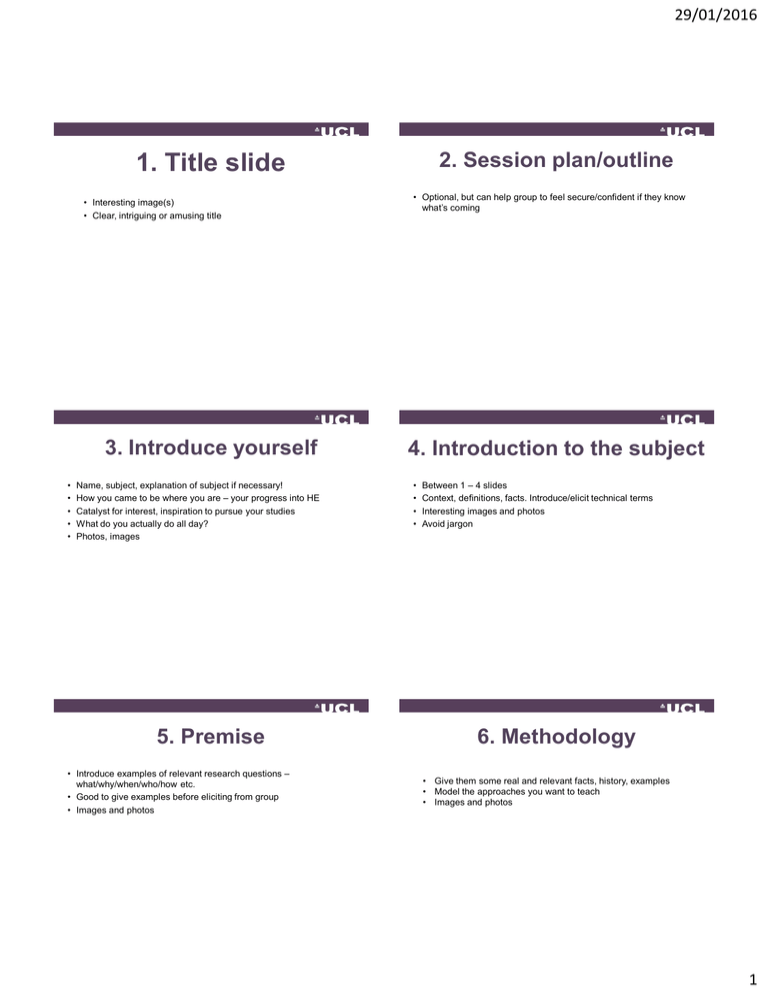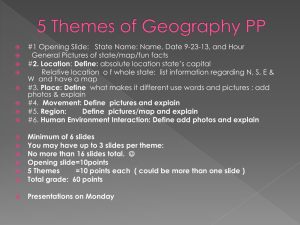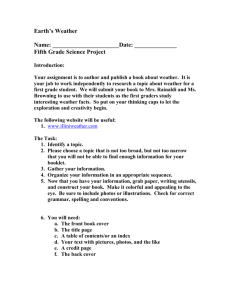1. Title slide 2. Session plan/outline 29/01/2016
advertisement

29/01/2016 2. Session plan/outline 1. Title slide • Interesting image(s) • Clear, intriguing or amusing title 3. Introduce yourself • • • • • Name, subject, explanation of subject if necessary! How you came to be where you are – your progress into HE Catalyst for interest, inspiration to pursue your studies What do you actually do all day? Photos, images 5. Premise • Introduce examples of relevant research questions – what/why/when/who/how etc. • Good to give examples before eliciting from group • Images and photos • Optional, but can help group to feel secure/confident if they know what’s coming 4. Introduction to the subject • • • • Between 1 – 4 slides Context, definitions, facts. Introduce/elicit technical terms Interesting images and photos Avoid jargon 6. Methodology • Give them some real and relevant facts, history, examples • Model the approaches you want to teach • Images and photos 1 29/01/2016 7. Examples • Build on subject • More relevant examples or develop focus • Could use a small group/pairs activity to teach the method 9. Recap slide (optional) • Cells rely on molecular machines called proteins which are long chains of amino acids. • The instructions to make these proteins are written in your genome using the four letters A,C,G and T. Your genome is made out of a chemical called DNA. • Individual instructions are called genes. • When needed, this information is turned into a portable form called RNA in a process called transcription. • The process of creating proteins using the RNA instruction is called translation. 11. Summary of key points Elicit Recap (reveal slide) 8. Reinforce • Small group or pair work • Discussion in groups and whole group feed back • Complementary activity – listening, video, worksheet 10. Build or develop premise Implication or application in specific or broader contexts Your particular area of expertise Listening exercises Video clips Prepare debates Drawing/making Object handling Role playing 12. So what Relevance / meaning / value in the world Could have brief whole class discussion about broader implications (scientifically / ethically / practically / socially / economically / politically etc.) 2 29/01/2016 13. Career opportunities Why study this subject?! Directly related and beyond Inspiring images or photos 3


